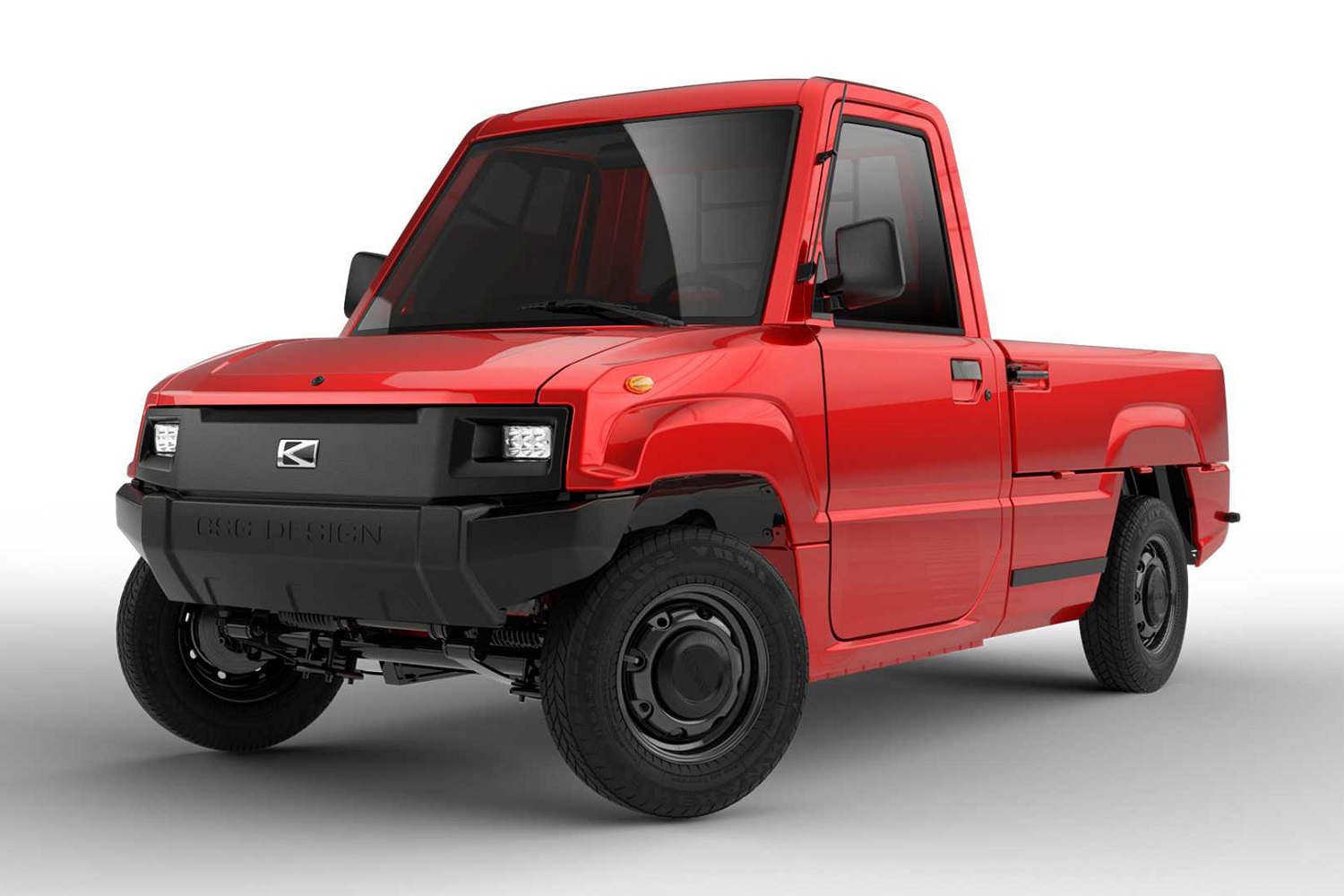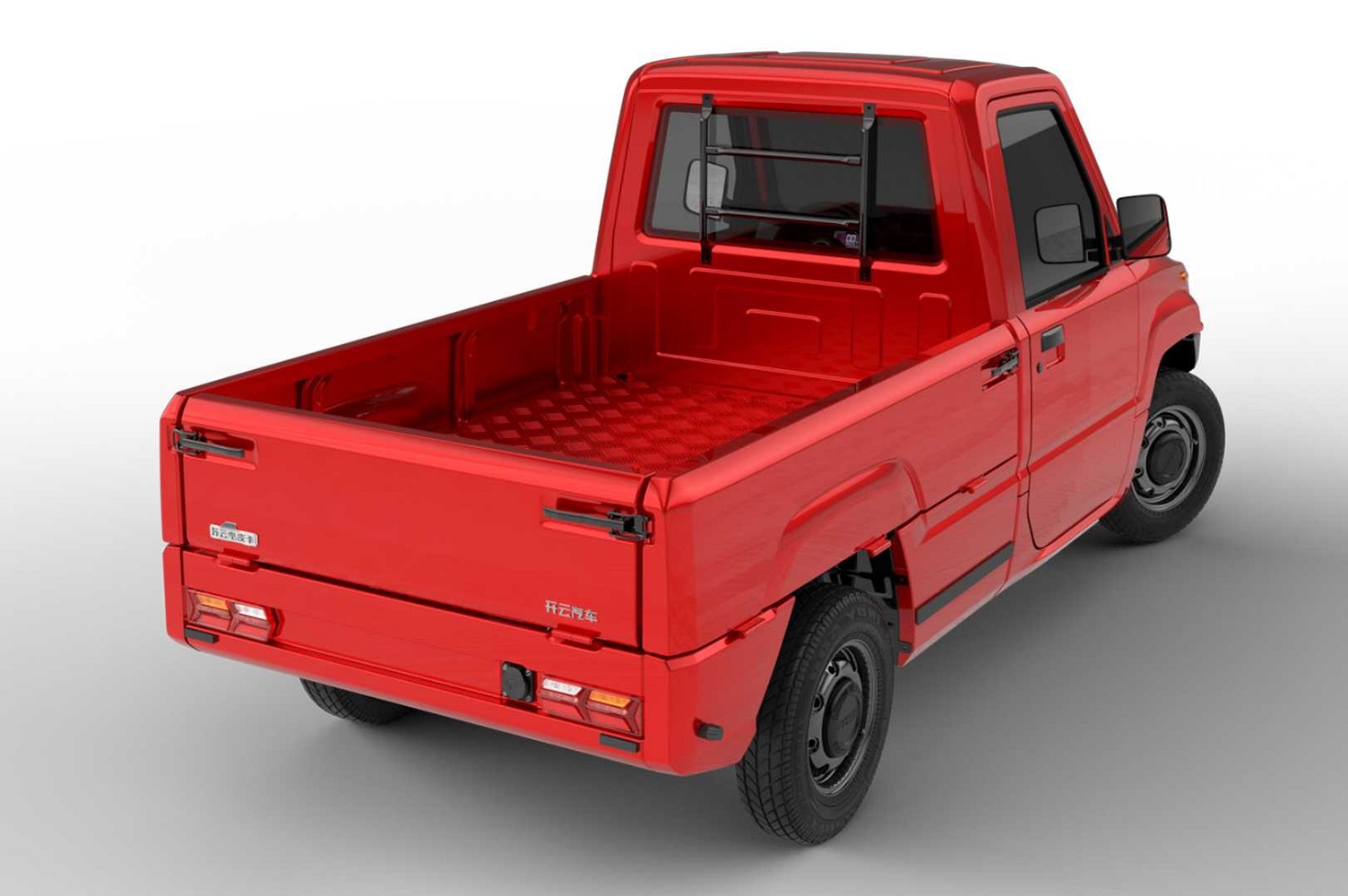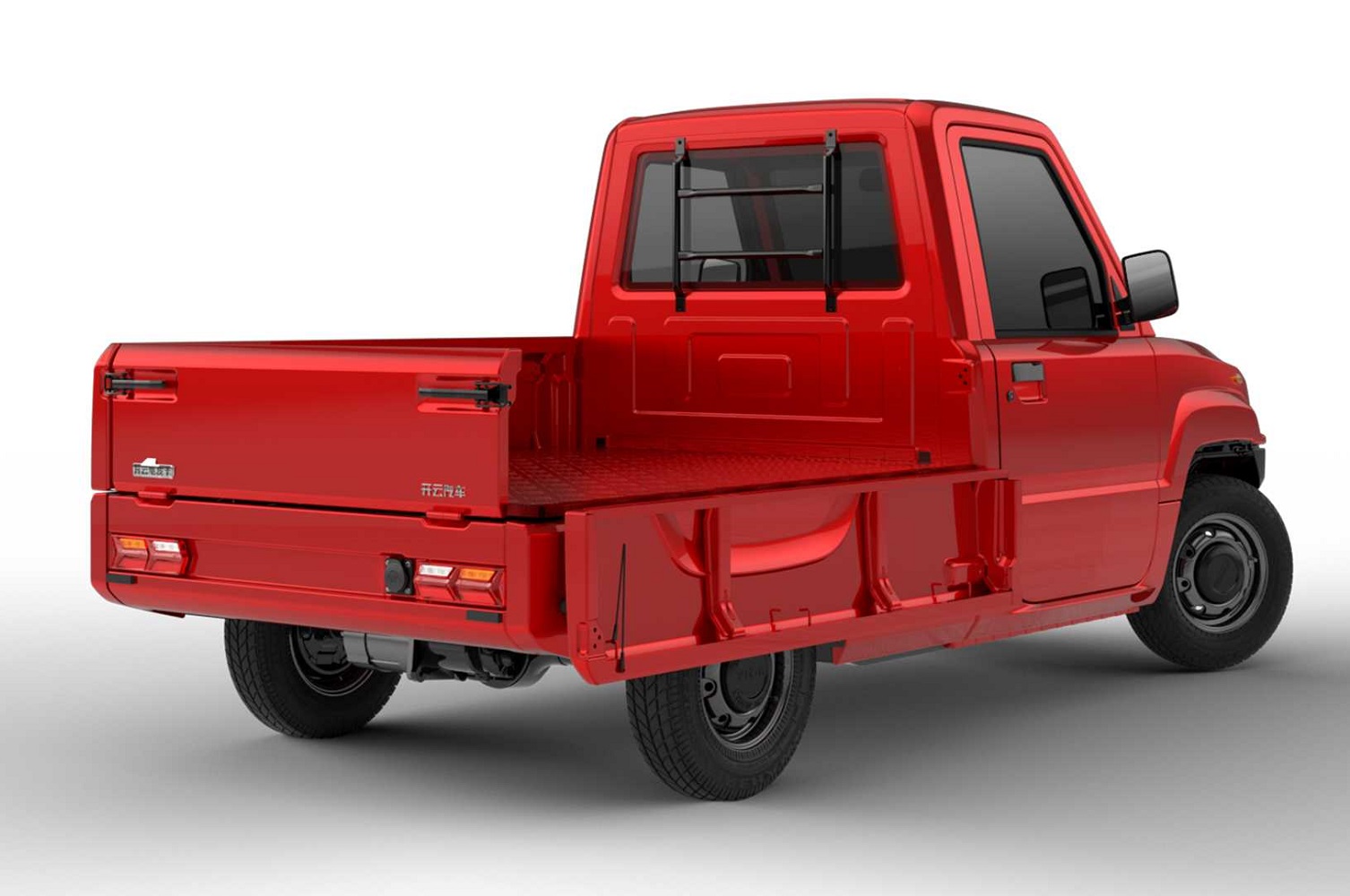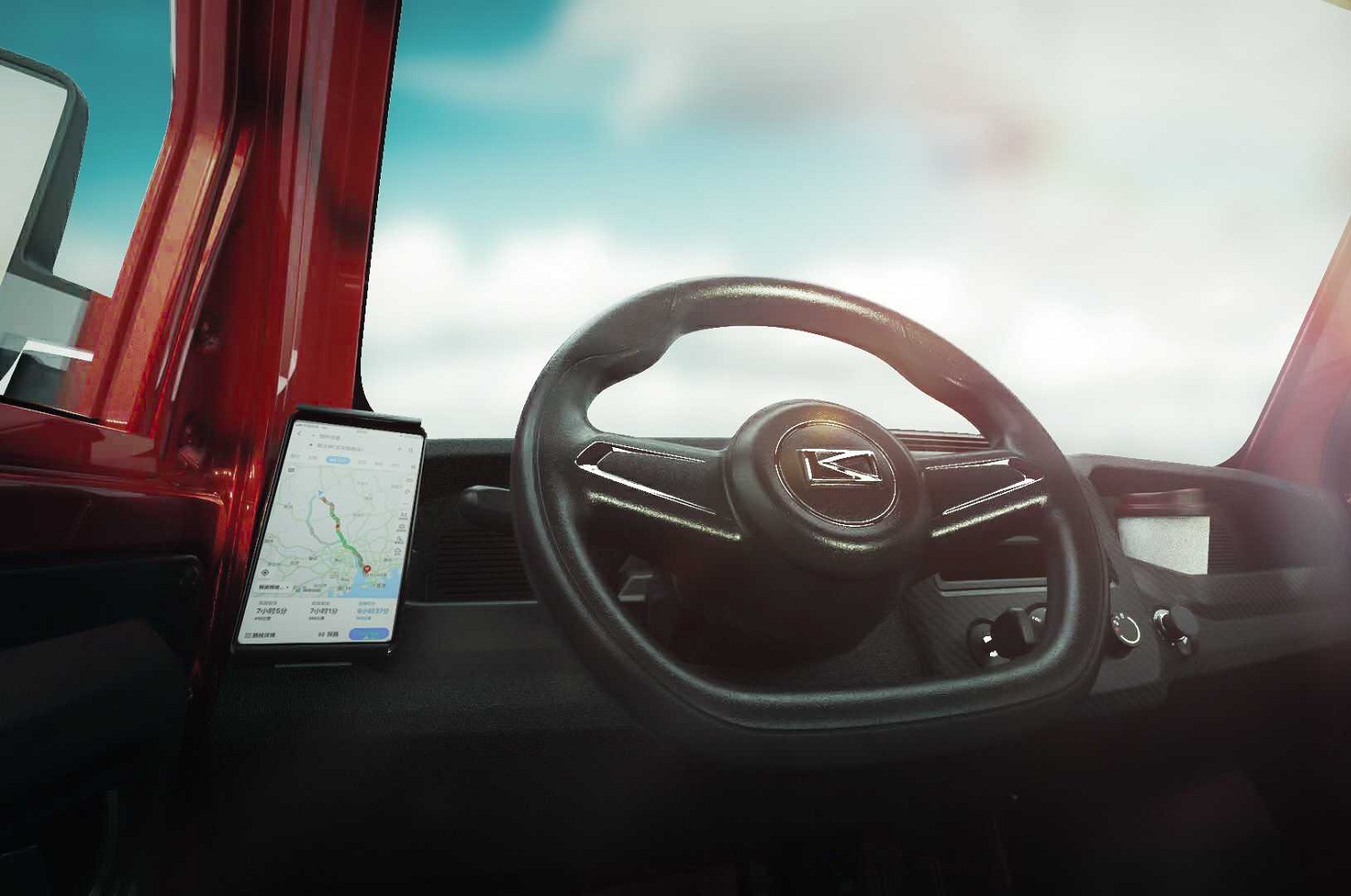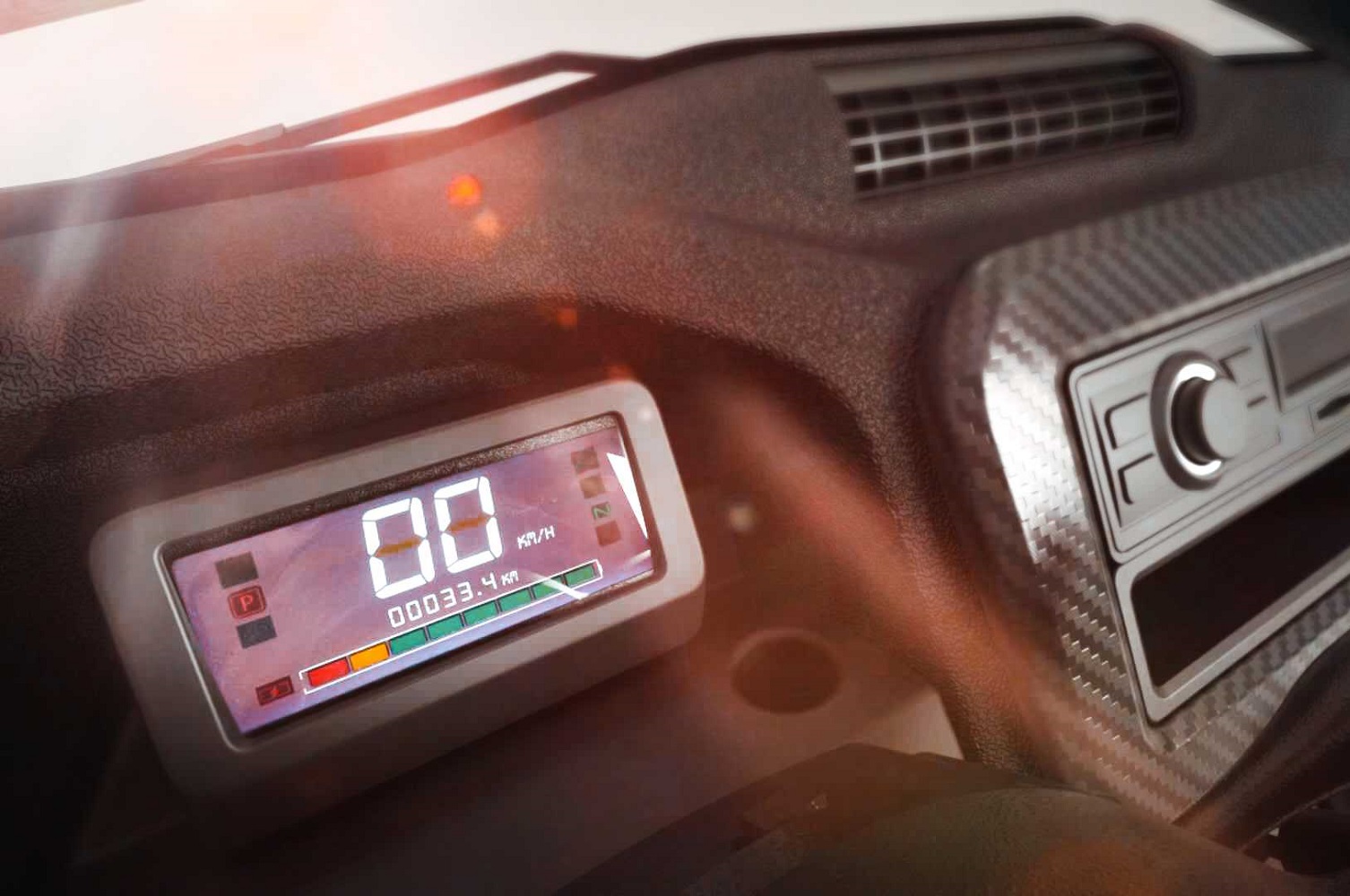All eyes are locked on the battle for dominance that’s about to play out in the electric pickup truck segment. Will Rivian beat Tesla to the punch? Will Ford and Chevrolet be able to defend their hegemony? While everyone else is prepping, a five-year-old Chinese company that no one has ever heard of quietly launched a tiny electric pickup closer to a golf cart than to a Silverado.
Kaiyun Motors (we told you it wasn’t a household name) began selling a battery-powered truck in the United States in May. It’s called Pickman, which might be because it’s small enough for a Pikmin to drive, and it’s priced at $8,000. That figure makes it sound like the cheapest new car in the United States, but we wouldn’t file it under the car category.
Power for the Pickman comes from a four-horsepower electric motor that propels it to a top speed of about 25 mph. The motor draws electricity from a small battery pack that zaps the rear wheels for up to 68 miles of range. Kaiyun Motors pegs its charging time between 8 and 10 hours, but don’t expect to be able to plug this thing into a 150-kilowatt station. While 4 horsepower is a rounding error on most specifications sheets, it’s an output that mind-boggingly allows the Pickman to haul 2,200 pounds in the small cargo compartment located right behind the cab.
The interior appears to have a two-spoke steering wheel, a bench seat, a digital instrument cluster, a few switches, a 12-volt outlet, and little else. It doesn’t need much, because it wasn’t designed with creature comforts in mind, and it doesn’t have to comply with the safety regulations that make equipment like airbags mandatory. Buyers can inexplicably order fake carbon fiber trim to jazz up the center console.
To us, the Pickman looks like a cross between an early Austin Metro and a last-generation Suzuki Jimny, which is a weird combination that works better than it should. Besides, style wasn’t a priority. It’s a pure, undiluted expression of function-over-form design.
Kaiyun has already sold 40 examples of the Pickman in the United States, and it hopes that figure will grow to 4,000 by the end of 2020. If you’d rather sell than buy, and if you believe Americans are ready to adopt a golf cart-sized electric truck with a made in China label, keep in mind the company is looking to add dealers to its network.

